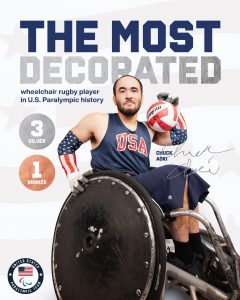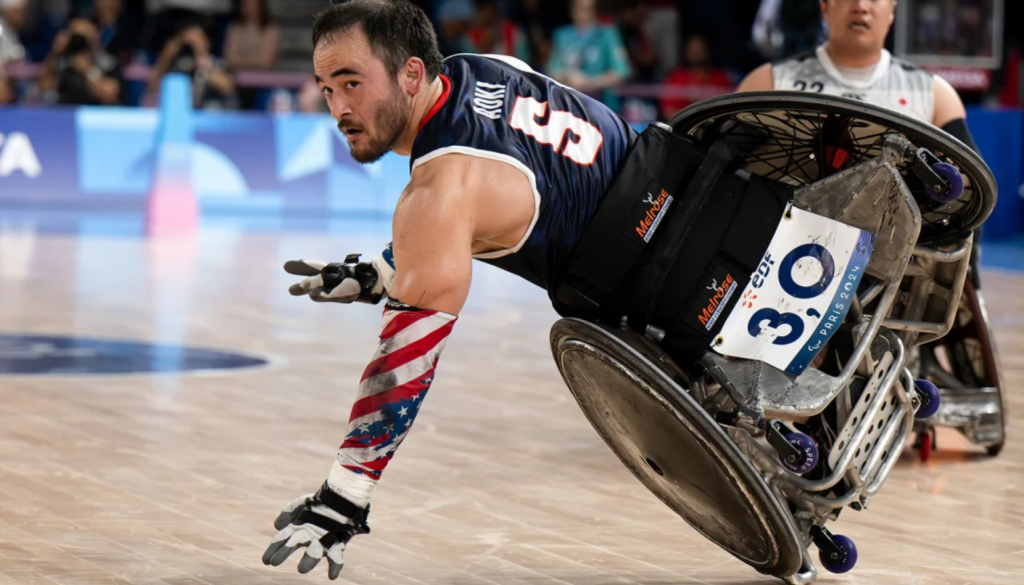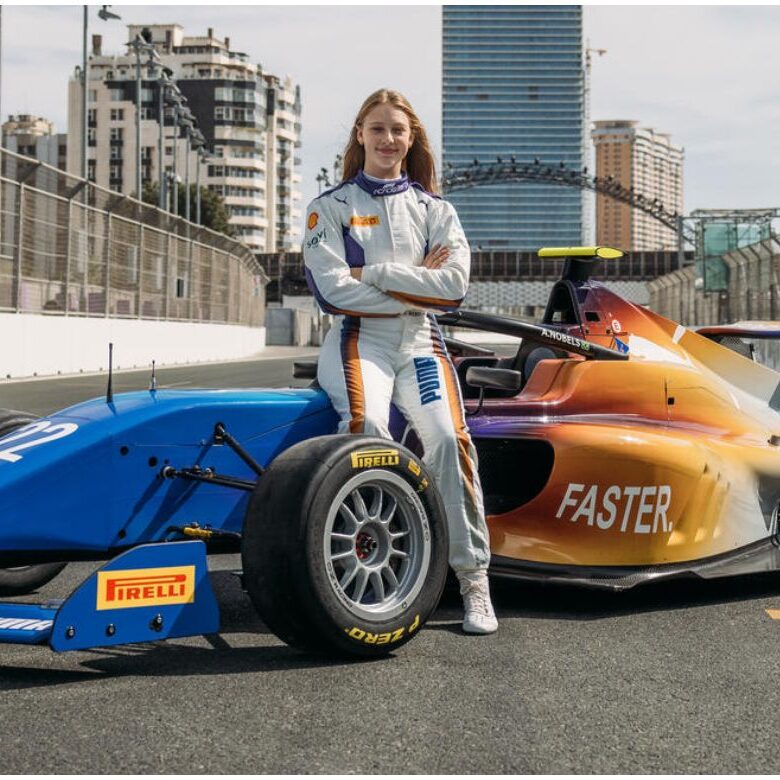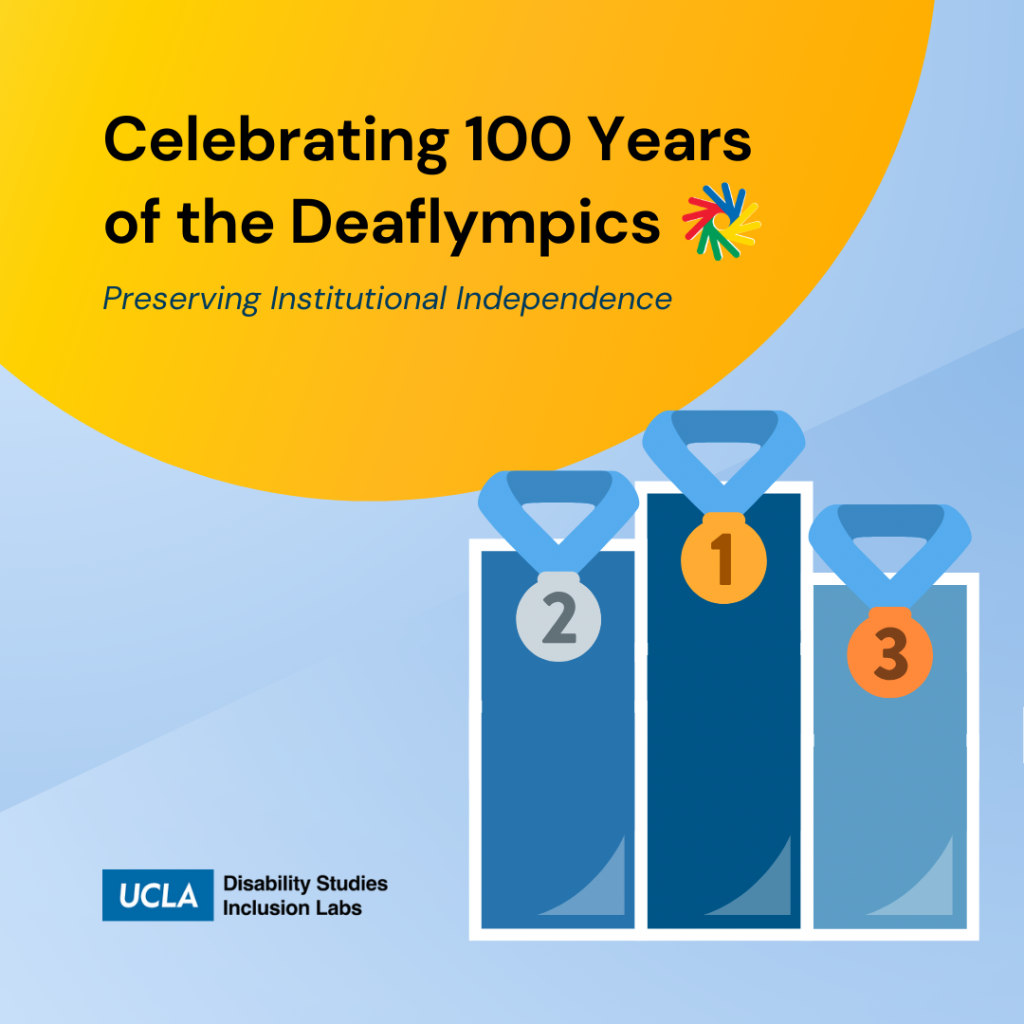
The UCLA Committee on Disability hosted a Keynote Conversation with 4-time Paralympian Chuck Aoki. In celebration of 2024 Disability Pride Week, Aoki discussed the importance of adaptive sports in the United States from the grassroots level to the Paralympics level. Speakers included Michael Garafola (Adaptive Sports and Recreation Coordinator, UCLA) and Carolanne Link (Web Accessibility Initiative Senior Program Manager, UCLA).
Adaptive Sports allow people with and without disabilities to enjoy the thrill of competition by modifying existing sports and creating new ones. Despite many sports being modified for accessibility, Aoki highlighted that there is no natural pipeline – from youth leagues to organized sports in high school – for the disabled community to access adaptive sports. Across the United States, K-12 schools and Parks and Recreation rarely offer adaptive sports curricula or teams. As a result, entry points vary widely as some individuals become involved in adaptive sports at 4 years old whereas others may learn about the existence of adaptive sports at 21 years old. Regardless of entry point, Aoki asserts that it is never too late to start adaptive sports.
For Aoki, the 2024 Paris Paralympics was an incredible show of support as the games amassed 15.4 million viewers. From record-breaking viewership to sold-out games, Aoki shared that the energy at the Paralympic Games was unlike any other. Following the Paris Paralympics, numerous para-athletes across the U.S. have also experienced massive growth in followers and views on social media, including the official Paralympic TikTok account.
As Los Angeles and UCLA prepare for the LA28 Paralympics, Aoki called on everyone to follow and learn more about Paralympic sports and athletes. For Angelenos and Bruins, there are numerous opportunities to learn more and get involved through UCLA Adaptive Recreation and Angel City Sports. Aoki asked the UCLA community to get involved by raising awareness about adaptive sports and volunteering at local adaptive sports centers.
For a full list of organizations, visit the resources page on the DS Sports and Society Inclusion Lab website.



